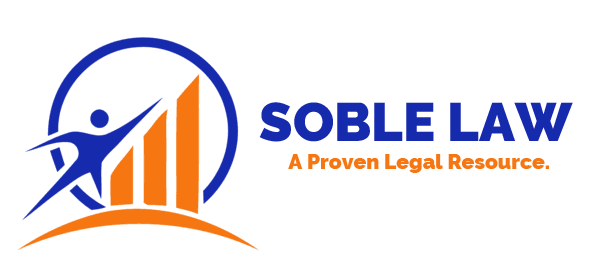CREDIT CARD ISSUES
Contact Us
We will get back to you as soon as possible
Please try again later


WHAT PEOPLE ARE SAYING...

"Attorney David Soble lives up to his firm's namesake, "Proven Resource." I appreciate knowing that when my clients need a diligent and responsive real estate or contracts attorney, I can easily make the referral to David, David is well worth having on your side."
Dino Lembesis
South Lyon, MI
Button
"When everyone 'didn't get it,' you really listened to me until you understood the problem. I asked two other lawyers before I came to you. Thank you for your time and your empathy."
-V. Braun
MashIt
"I worked with David to help with a problem concerning a balloon payment for my line of credit. He was, helpful, knowledgeable, compassionate and actually nice. I would recommend him for any debt problems you have!!! Thanks David -- what a great Thanksgiving present."
Jeanne L. Shelby
FabuFit
"David, I anguished for months over my problem. Had I not called you, I don't think I would have gotten it resolved. In less than 2 weeks you negotiated a fair settlement for my business. I'm so happy and my employees are happy. Thank you!"
Rhonda St. Luce
Southfield, MI
YesSuits
"The balance for one of my credit cards was over $14,000. In less than one week David and his staff were able to negotiate a new balance for less than $4000. We saved over $10,000. This was for just on one of our cards. I have to admit that my husband and I were skeptical at first, but they delivered. I now understand why the meaning behind the name. David and his staff are truly a Proven Resource!"
J. James
Button
"David is a highly reliable resource for real estate and lending cases. As a real estate lawyer and successful investor, he not only "talks the talk," but also "walks the walk," providing his clients unparalleled insight on how the law directly affects their daily business success. When 'the situation is critical' call David."
David Waxman
Solon, OH
Button
"The IRS lien killed my ability to refinance my business loan with [the bank]. They wanted the lien removed or they wanted me to pay off the loan immediately. [David] Soble got my 'house' in order and quickly. His experience was my strength."
Joel L. Lapeer
Button
"I am extremely relieved and pleased with the results. This issue has been dragging on for years and David had it resolved in 120 days."
M. Donte
Button
"David Soble is an unmatched resource for all things related to real estate finance and law. He's dealt with nearly every type of transaction, loan, property, lender, seller, and buyer. He's seen it all and knows the intricacies of creating a successful resolution for his clients. If you need creative and determined counsel, I highly recommend David."
David Brockmyer
Grand Haven, MI
Button
"As a busy small business operator, I can tell you that David's legal efficiency and his sensitivity to our financial resources is very much appreciated. His real estate advice is spot on and I know that when working with him that I am getting a great return on my investment. When in doubt, call David. He's worth every penny!"
Andy Perlin
Farmington, MI
Button
"If you have a legal problem with your bank loan or mortgage, you can't go wrong by calling David Soble. His legal experience in the real estate and lending community is exceptional. I have had only positive experiences. His approach to client service is an added bonus."
Brian Goodman
Walled Lake, MI
Button
"David has extensive experience negotiating, reviewing and closing real estate and finance transactions. I worked with David both during his time in the banking industry and his legal practice. His attention to detail and persistence yield excellent results for those he represents. I highly regard his work."
Bat Seymour
Royal Oak, MI
Button
"David is a proven real estate attorney. David has built a successful practice on being able to successfully tackle, on behalf of clients, niche and "unique" circumstances that surround and/or impact real estate ownership. As a fellow real estate attorney and counselor, I whole-heartedly recommend David to individuals and companies a like who are facing unique challenges or claims involving real estate locally, regionally and/or nationally."
Stuart Dorf, JD
Bloomfield, MI
Button
"David has served as our Michigan general counsel for a few years now. He is great. Great on the details and even better on the forward looking strategy sessions. He has always stepped up on issues ranging from tenant issues and foreclosure to lender compliance and licensing. He reliably protects our interests and helps us avoid problems as we grow into the future. And one more thing: David interfaces very well with our clients. He's very good at working with people, defusing emotional issues and finding the win/win solutions we desire. "
Rick Webster
Button
"When it comes to attorneys, David has a tremendous amount of real estate (residential and commercial) experience. He's very practical and knowledgeable with a wide berth of contacts in the state of Michigan. I highly recommended him if you require legal/ real estate services."
Rich S.
Troy, MI
Button
"David Soble gives the best advice."
Daniel Liverman
Detroit, MI
Button
"Once David Soble got involved the other party changed their position by 180 degrees. I witnessed a complete attitude adjustment."
W. and H. Rippy
Canton, MI
Button
"David has a unique understanding of the entire mortgage banking environment and is a champion with steadfast tenacity to protect his clients' interests....residential and commercial sectors."
Tim Perkins
Troy, MI
Button-

"I tell my friends that when you are dealing with "Situation Critical," you can't afford NOT to use one of the best...stumped for a solution, we put our faith in David's experience. It was worth it. Thanks for everything."
G. Dossman
Brighton, MI
Button 
"Your materials that you provide are always so informative and 'spot on'. I especially love getting your newsletters David. They make me smile! I share them with my colleagues and we always look forward to receiving the next issue."
George D.
Birmingham, MI
Button
"Where do we begin? We greatly appreciate all of the hard work you did for us last month. Without you, we would have lost a big part of our lives. If you treat other "clients" the same as us, your roster of friends must be a mile long. Your guidance has been incredible...Your name and number will be part of our phone book. We will sleep like babies tonight."
L. and S.
Eastpoint, MI
Button
"David, we have learned so much from you over the years of working with you. Your real estate and lending knowledge is "second to none" and that's saying it lightly! Thanks again for your dedication and persistence. Sheila and I recommend your services to our friends every opportunity we get."
Jim Davis
Brownstown, MI
Button
"It was such a pleasure to meet with you. Thank you for taking the time to share your knowledge and real estate expertise. In just an hour, we have learned a lot from you."
Tina D.
Shelby Twp, MI
Button
"David Soble helped us out on a business contract. He negotiated the clause that gave us so much grief, and saved us a bunch of money and head ache. Next time we need legal help, we won't go cheap on a "legal packet" from the office supply store. Thanks again for everything."
Evan K.
Canton, MI
Button
"Three days ago, I thought I would lose my business until, [David Soble] got involved with the bank and their attorneys. Now that things have calmed down, I can write this note of appreciation. Thanks."
Vicky H.
Westland, MI
Button
"The balance for one of my credit cards was over $14,000. In less than one week David and his staff were able to negotiate a new balance for less than $4,000. We saved over $10,000. This was for just on one of our cards. I have to admit that my husband and I were skeptical at first, but they delivered. I now understand why the meaning behind the name. David and his staff are truly a Proven Resource."
J. James
Detroit, MI
Button
"Thank you very, very much for the professional job you did, and the manner in which you responded to my questions as well as finishing the job appropriately. Much appreciated. I will certainly refer you to anyone that needs help in this arena."
Dave L.
Bloomfield Hills, MI
Button
"I've been working with Proven Resource for only a few days and have already learned so much valuable information of what 'Not' to do."
Tracie C.
West Bloomfield, MI
Button
"Thanks David, you were just terrific to work with."
Jean K.
Royal Oak, MI
Button
"I went to David when my negotiations with the bank had stalled. David got them restarted and pushed the deal across the finish line. I have so much confidence in him that I've since referred clients and friends."
Jason B.
Rochester, MI
Button
"Got right down to business - like a laser, he found what was wrong with all of my property papers."
Larry P.
Farmington, MI
Button
"We can't even begin to "Thank You" enough for the financial and legal relief you've given us. You always seem to put my worried mind at ease by your reassurance, being so patient and professional. You even return phone calls! Our sincerest thanks."
Iris A.
Livonia, MI
Button
"I wish we had come to you a few years ago. Your service was outstanding. We cannot thank you enough."
Billy S.
Waterford, MI
Button
"You have taken Robert Redford's title as 'The Natural'. Straight up, easy to understand, and full of great information."
Mike R.
Birmingham, MI
Button
"I didn't think anyone would be able to help me with my real estate problem. David strategized the whole process. It did take a while, but patience and perseverance paid off. You were worth every penny as I sit here looking at my final settlement agreement in disbelief. "
Scott C.
Southfield, MI
Button
"David Soble pulled out all the stops to make sure my deal got done. He is very professional and his real estate expertise far exceeded my expectations. Overall I was very impressed with his abilities, not only would I recommend, but I rave about his services!"
Joshua Epstein
Farmington, MI
Button
"David's approach is quick resolutions and negotiation. You need to know who you can trust. David's resources of experts and professionals is huge to his success as his method is truth is in the fact's. Thanks David for being honest and fighting for a widow and her family, their property rights and business. When trust is an issue go with the Proven Resource: David Soble"
Brad E.
Bay City, MI
Button
"He was able to talk to me in simple terms so I could understand the legal part of the case. He answered all my e-mails concerning the case that day or by the next day. Was very satisfied with how everything turned out."
Tracy V.
Monroe, MI
Button
"I've known David thru my business as a real estate investor and educator for several years. I was surprised and delighted when he answered my question on AVVO.com. He spoke to me by phone several times providing legal insight into my issue."
Dana Leigh
Lansing, MI
Button
"I had a consolation with David about a real estate issue that I was having. He was AWESOME. He took the time to look through my documents and give me feedback on what I should do. He knows his stuff. Call David if you need a real estate lawyer. You will not be disappointed."
Ben C.
Commerce Twp., MI
Button
"I called for help to deal with a bad contractor. Mr. Soble answered all of my questions, asked a few I never thought of and gave me honest answers. He returned my phone call very promptly, as well. I have not hired him as of yet, my situation may have worked itself out, but I WILL hire him if it isn't resolved soon. In fact I have referred him to 2 friends already. I just spoke to him yesterday! Highly recommend."
Kristy R.
Canton, MI
Button
"Once David Soble got involved we finally started communicating. I would highly recommend him to anyone in need for real estate matters dealing with fight for his clients best interest in handing matters when it comes to negotiating for you."
Connie Tarhanic & Carol Parsons
Grass Lake, MI
Button
"David Soble is the best. He takes great pride in Real Estate and working with you. He not only consulted me, he took the time to explain in detail all options for me as well as come up with a feasible solution. I now have his number in my contacts as The Problem Solver and will definitely have him represent me in future Real Estate endeavors. Thanks David, you rock!"
Mr. Kincade
Tampa, FL
Button
"We were recommended by a friend and we have had a relationship ever since. He knows his law, I would recommend highly! You become a part of the family he is very honest with you. We are very satisfied with the service we receive and will continue to have him as our attorney."
Laverne W.
West Bloomfield, MI
Button
"David's advice has never failed me. I was recently offered a business opportunity that at first glance I was ready to jump on. David laid out all of the pros... and then those pesky cons for me. He advised me to remove my emotions and to think like a businesswoman. I took his advice and am now very happily doing what I want to do and also have placed myself in a position to make money instead of losing it."
Jean B.
Waterford, MI
Button
"I have had the pleasure of working with David in both adversarial and non adversarial settings as a fellow attorney here in the Metro Detroit Area. I have even referred clients to him due his extensive expertise in consumer law and other related collection issues."
Creighton G.
Wyandotte, MI
Button
"I am a local investor and had entered into a hard money loan with a high interest and 10,000 pay out due upon closing in 6 months. My partners and I negotiated a couple of extensions, but due to the 10,000 payout on the sale of the property, it was making it impossible to sell for a profit. I called David Soble and he was able to negotiate a buyout without the 10,000 hit and we were able to successfully complete the sale. I am so thankful to have met him and for his help."
Jay B.
Canton, MI
Button
"Living out of the area, I was referred to David and couldn't be happier. He has put together a couple Land Contracts for us and helping with questions on other projects in the area. It's great to have someone you can count on, when you can't be there. He is extremely knowledgeable and I have every confidence he is always working in our best interest!"
Cindy P.
Redondo Beach, CA
Button
"My wife and I have had the pleasure of working with David for the past year and half. He is a wonderful lawyer who dealt with our mortgage company matter responsively. I would high recommend him to anyone in need for real estate matters dealing with mortgages. He is very knowledgeable, easy to talk with and will fight for his clients best interest in handing matters when it comes to negotiating for you."
John D.
Dearborn Hts, MI
Button
"David stayed the course and was able to get the results we were hoping for. Thanks!"
David M.
Allen Park, MI
Button
"Resolved complex foreclosure matter as a result of his contacts and legal acumen in the most professional manner at a reasonable fee. Very pleased to recommend Mr. Soble."
Irwin L.
West Bloomfield, MI
Button
"My wife and high recently working with David on the shortsale. David was a pleasure to work with. Not only did David keep us informed every step of the way, but he always got back to us in a timely fashion whenever we had questions and never once did we feel like we were bothering him or asking questions."
James B.
Dearborn Hts., MI
Button
"This was my first time in 30+ years having to deal with a landlord. My son is at school at the University of Michigan and has been having constant problems with his apartment. These problems have been going on since we signed the lease back in September. David gave us some great legal advice on how to handle the problem in the most professional manner possible. He knew exactly what letter to write, which local agencies to contact and how."
Andy W.
Sylvan Lake, MI
Button
"I met David about two years ago and I can't say enough about him. David exceeded my expectations and when my needs were beyond his specialty, he provided access to his network of lawyers to assist me. It's rare to find someone that not only helps, but is confident enough to refer when it's in his clients best interests."
Mark A.
West Bloomfield, MI
Button
"David immediately put me at ease and made me feel like a friend, not a client. He explained my options in language that was understandable without being condescending. David communicated with me in a timely fashion and always answered my questions. My matter was resolved quickly, professionally and completely"
Loretta McG,
Waterford Twp, MI
Button
"I was directed towards David's attention by my brother. I had some complex legal circumstances and decided to hire David as my attorney. WOW! is this guy smart. David walked me through the process and educated me on all my options. David got the results that I was expecting. I even passed his contact information to my buddy Drew who hired him as well."
Anonymous
Button
"David was referred to us by our real estate agent. He came highly recommended and after working with David, we now know why. We wanted to purchase a property that had many different issues that needed to be resolved. David was instrumental in clearing up all of the issues. David is accessible, honest, trust worthy and I knew he would get the job done. David was very easy to talk to and I always received a timely phone call or email back."
Kari S.
Metamora, MI
Button
"I was referred to David by a friend that had known him for years and he has helped me with several deals over the past couple of years. His knowledge and procedures have assisted in overcoming some unusual situation with good results. His meet and greet luncheons also bring many diverse people together for networking as well. I really like this guy!"
Tam B.
Mason, MI
Button
"I came to David Soble with a very difficult issue, I had been to many attorneys and they did not listen to me. David took the time to listen and I felt like I was his first and highest priority. He is a very strategic and dynamic thinker. He helped me with my case and was methodical and calm throughout the entire case. I am using him for another case and I appreciate how diverse his legal practice is, I recommend him with the utmost confidence."
Kate L.
Farmington, MI
Button
"I went to two other lawyers for help before I was referred by another attorney to Dave. Before Dave, They kept telling me that my only answer was bankruptcy. That would really cause me more problems because I had a family business that was passed on for several generations. Dave reviewed my files and when he opened them he was able to tell me what to do and how to do it fast before the bank got to me. After two weeks my business and my family could still run it for the next generation. This guy knows his stuff."
Larry P.
Eastpointe. MI
Button
"David came highly recommended to us via good old fashioned word of mouth. We were concerned that we would not be able to find high quality and affordable legal counsel for our real estate problem, especially after already losing money to someone else. It is very obvious that David enjoys his work. His good nature and enthusiasm let us know that we would be receiving excellent advice and skilled legal counsel. Now it is our turn to refer David to our friends."
Myra K.
Brightpn, MI
Button
"Dave Soble lives up to the name Proven Resource. Dave is my Resource when it comes to Real Estate and tax laws. Dave knows his stuff! I love working with Dave, he does an outstanding Job!"
Sean, Northern Bell Networks
Southfield, MI
Button
"David and his team are top notch, David really knows his craft and save my family and myself thousand in the process. Thanks again for your dedication to service and commitment to excellence, we are grateful."
Brett Y.
Commerce Twp., MI
Button
"I engaged David for a serious problem I was having with former tenant. He was extremely helpful and I was able to address the situation efficiently and professionally."
Alex W.
West Bloomfield, MI
Button
"David has been tremendous resource for my friends and clients. He has an excellent knowledge of most are of real estate and banking law. I look forward to sending him many clients in the future."
Bruce Nosanchuk
West Bloomfield, MI
Button
"I recently referred a client to David for an advanced real estate auction situation. I have known David for many years and always knew he was a good guy but I got to see what an outstanding attorney he is as well. David had a breadth of knowledge and experience that ensured both my client and I knew he was clear about the subject. His advice was deliberate and detailed and he was easily accessible. We both felt like David gave us top notch attention on very short notice and provided an intelligent strategy to solve a problem. I would not hesitate to recommend David again for any legal matters he feels comfortable with. It was extremely clear he had tremendous experience. A+++ attorney."
Debbie Binder
West Bloomfield, MI
Button
"One of the most fantastic and honest individuals you will ever meet!!"
Kim Maddox
Taylor, MI
Button
"David and Proven Resource are real estate guru and experts in the area, their wealthy knowledge and experience helped our business tremendously. The aids we got not only just in the details of deals, transactions and closings, but more importantly is a piece of mind that you have before and after you made the business decisions. I'd recommend highly David and his staff."
Mike Ye
West Bloomfield, MI
Button
"David is truly professional, understanding and knowledgeable when it comes to providing invaluable advice and recommendations, both in the area of Debt Consolidation and real estate. David is up-front and proves himself an asset from the get-go... I highly recommend Proven Resource and all they have to offer."
Richard K.
Farmington, MI
Button
"David and his staff are extremely knowledgeable about their subject matter and are always very timely in their communications. They are a pleasure to work with. I would highly recommend them!"
Amy Walsh
West Bloomfield, MI
Button
"David and his team are absolutely top notch and provide A1 service. I would recommend them to anyone in need. Thank you!"
Robert Syfert
Tampa, FL
Button
"David has done a wonderful job in assisting us with advice for our rental property. Thank you!"
Rob W.
West Bloomfield, MI
Button
"David Soble is a class act and provides a wealth of information and resources to his clients. Choose Proven Resource and get positive results."
Susanne Earle
Windsor, CA
Button
"David Soble has been practicing for many years and has a wide range and depth of knowledge in a number of areas, in particular real estate and debt resolution. He is an exceptional and skilled negotiator. His knowledge regarding mortgages, banking practices and real estate is outstanding."
Attorney Peer Review
Button
"David Soble is a skilled and seasoned practitioner, and an expert in his specialty. The epitome of what a lawyer should be, David practices law as it should be done, servicing clients with and working with opposing counsel in a professional manner. Further, David has taken upon himself to educate others with his blogs, seminars, and consultations. I would not hesitate to recommend David for an AV rating."
Attorney Peer Review
Button
"David Soble is a very knowledgeable debtor-creditor attorney who has represented financial institutions as well as individual and corporate debtors. He is a regulatory expert and a creative thinker who can design out-of-the box debt restructures. He also really cares about his clients and goes the extra mile to provide them with the best legal services possible."
Attorney Peer Review
Button
"It is always a hope that anyone you work with will treat your situation as their own. This is what we found with David Soble. He was thorough and knowledge and did an excellent job for us. We are very grateful that he was recommended to us and we are using him again on second project."
Milla Kest
Bloomfield Hills, MI
Button
"He is helpful, knowledgeable, and has great follow through. A fantastic lawyer!"
Karen Humphries
Adrian, MI
Button
"Your search for the right professional should start and end with David. David's actions on a daily basis prove his sincere commitment to building a real relationship with the client. David represents the top of his field in real estate and finance law. If you want the job done right and real results look no further!"
Kurt Steinhebel
Florida
Button
"When I was searching a commercial real estate lawyer, Dave was highly recommended by several referrals. After talking to a few lawyers, it was clear that Dave's knowledge in commercial real estate was superior. My husband and I successfully purchased our first multi-family commercial real estate property. Dave was not just our lawyer, he also acted like a mentor and helped guide us throughout the process. He was candid about his concerns, identified legal risks and offered solutions. Dave was very professional, responsive and a pleasure to work with. I would recommend him highly."
Sharon C.
West Bloomfield, MI
Button
"While working with David for several years, he showed tremendous character and integrity during some difficult times. He is true to his word and offers some unique insights. I would recommend his services."
Aaaron Hasenjager
Auburn Hills, MI
Button
"David has has always been very responsive to any real estate questions or needs that I've had. I always end our conversations feeling clear and confident in the advice and strategies that he's recommended. Will refer David to all my clients and associates."
Mattew Foster
Commerce Twp., MI
Button
"David has has always been very responsive to any real estate questions or needs that I've had. I always end our conversations feeling clear and confident in the advice and strategies that he's recommended. Will refer David to all my clients and associates."
Francisco Calleros
Utica, MI
Button
"David and Proven Resource always gets results. I can always relax, once I give David a case or an assignment. I know the job will get done, and the results will be great. Let David's network work for you!"
Paul Bensman
Farmington Hills, MI
Button
"David really helped us through a very trying matter! My parents are so happy that we contacted David,he helped us through every step of the way!"
John Colley
Eastpointe, MI
Button
"This was my first time ever needing to contact a lawyer so I was a little anxious. David Soble was very helpful and understanding of my situation. Thanks to his excellent advice and knowledge of law, I feel much more comfortable going to court with the resources he gave me."
Lucas Molic
Southgate, MI
Button
"David Soble was very professional and easy to work with. I will use his services again to help me with my real estate questions and investing."
Dawn Ness Hubbard
Brighton, MI
Button
"I needed strong legal advice from a strong legal professional. My landlord think that after 18 days of no running water, heat, gas to cook with or to heat the water (once the water tank was installed), I should pay her $942. I was in awe but knew I had a case. I contacted Mr. Soble and was given information that was very similar to what I had already thought. This news released a lot of tension and allowed me to plan a better response to pursue what I rightfully deserve. Thank you Mr. Soble. I am so glad I crossed your path."
Stephanie C.
Button
" As a former lawyer for "big banks," David has the insider's scoop on how to best help consumers and small business owners who have financial issues/questions. He'll be straightforward with you and will even tell you when you DON'T need an attorney!"
Ben Glass
Button
"I contacted David and was able to get an appointment with him that same day. I was very happy with how quickly he would respond to any questions I had."
Erica P.
Muskegon, MI
Button
WHAT IS BANKRUPTCY AND WHY SHOULD I AVOID IT?
WHAT ARE MY ALTERNATIVES TO BANKRUPTCY?
- Negotiation:
The first step to avoiding bankruptcy is to negotiate with your lenders and creditors. Most people are not comfortable with negotiating with their creditors, so they consult with an attorney negotiate for them. This is especially important if you have a steady income or assets. Creditors are less likely to work with a debtor if there are assets that you could liquidate. With an attorney, creditors are more likely to give you time to pay off your debts and may be willing to settle for a smaller amount than what you owe.
- Debt consolidation: You may be able to consolidate your debts and create a steady debt repayment plan as an alternative to bankruptcy. This option is best for those who do have a steady income and would still qualify for a debt consolidation loan. Although this can be expensive over the course of time, it will ward off the prospect of losing assets.
- Better budgeting: You may be able to avoid bankruptcy through a complete reorganization of your budget and some serious lifestyle changes. If you can re-budget to focus completely on paying off your debts, you may be able to avoid bankruptcy.
- Voluntarily liquidating assets: If you have anything of value that you would be willing to part with, such as a car, second home or stock portfolio, consider selling it to pay off your debts. Although it may be difficult to lose your possessions, you can start saving to repurchase once you’ve gotten yourself out of debt, and you will avoid bankruptcy.
CREDIT ISSUES
WHAT ARE SOME COMMON CREDIT CARD ISSUES AND HOW CAN I DEAL WITH THEM?
- Consistently late payments:
Even if you are meeting your minimum payment requirements, consistently late payments can cause you to incur late payment fees and higher interest rates, which increases your overall level of debt over time, as well as causing your creditors to harass you.
- High fees and interest rates: Many people don’t take the time to educate themselves on their card’s interest rate and fees when they sign up, which can lead to some unpleasant surprises when faced with their bill. This is an especially common problem with store or brand credit cards. High interest rates can lead to you paying much larger amounts over time.
- Overuse of cards: If you tend to swipe your card without thinking, before long you will realize that you’ve met or exceeded the spending limit on your account. This can have a very negative effect on your credit score, especially if you also tend to make your payments late.




